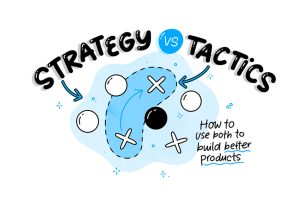Are You a Strategic Thinker? Discover the Key Signs with This Quick Self-Check
Introduction: Ground Your Marketing in Strategy
In today’s fast-paced digital world, it’s easy to jump into marketing with enthusiasm. However, without a clear and grounded plan, even the most exciting campaigns can fall flat. Strategic thinking—not spontaneous action—is what separates successful brands from those that struggle.
If I earned a dollar every time someone talked about their marketing by listing past tasks—like running social media ads or redesigning a logo—I’d have a hefty savings account by now.
While tactics like discount hosting, content creation, ad spend, or launching a new brand identity are valuable, they are often executed before a strategic foundation is built. This lack of alignment between goals and execution is where most businesses go wrong.
Before you invest in marketing, you need a clear, results-driven roadmap. Without it, you risk wasting money, time, and effort on campaigns that don’t deliver meaningful results.
The Foundation of Strategy: Lessons from History

The term “strategy” comes from military history, where leaders had to assess terrain, resources, and enemy positions to build winning battle plans. The key takeaway? Strategy came first—always.
Take the Allied invasion of Normandy during World War II as an example. Planning started in 1942, years before troops landed on June 6, 1944. This mission required intense preparation, coordination, and resource management. Leaders aligned air, land, and sea forces through joint exercises and simulations. Supplies were stockpiled. Tactical deception was used to mislead the enemy. All of this groundwork set the stage for one of history’s most effective military operations.
Now imagine if the Allies had rushed in without a plan. The result would have been chaos and failure. Just like in marketing—jumping in without strategy almost guarantees loss.
An Exercise in Sacrifice

A successful plan must also be realistic.
While optimism is common, when formulating your plan, don’t let hope cloud your judgment.
Effective plans require asking five essential questions:
- What decisions have you made?
- What have you given up?
- Can you explain your plan simply?
- Do the numbers add up?
- Have you involved others in the process?
While aiming for excellence is vital, it’s equally important that your short-term strategies are practical. Long-term goals can be ambitious, but they must be grounded in reality to avoid disappointments.
For instance, if you plan to drastically boost your brand’s popularity within a year, it may sound promising, but seasoned professionals can see if it’s unfeasible—especially if you lack the budget for broad advertising.
Hoping that your content will go viral or that a celebrity will endorse your product is not a strategy; it’s wishful thinking.
A solid plan is methodical, patient, and consistent. It is grounded in an honest assessment of your market position, customer needs, and what’s realistically achievable with your available resources.
Once you have a clear understanding, you can set realistic goals. If circumstances shift, your strategy and budget should be adjusted accordingly.
Strategy is about remaining relevant in a constantly evolving world.
Strategy First, Tactics Second

Building a strategy requires courage, clarity, and commitment. A true strategist knows how to prioritize, pivot, and persevere. While you can’t control everything, controlling what you can gives you a major advantage.
Start by:
-
Understanding your market
-
Defining your ideal customers
-
Setting measurable, specific goals
-
Outlining a path to reach them
This clarity shapes every marketing action that follows.
Conclusion
In conclusion, successful marketing and strategic planning are built on realism, patience, and careful analysis. By aligning your tactics with clear, achievable goals and staying adaptable in an ever-changing market, you ensure not only the sustainability of your efforts but also their effectiveness. Strategy should always come first, guiding every decision you make. With thorough preparation and a grounded approach, you can navigate the complexities of marketing, avoiding impulsive actions and achieving long-term success.














Leave a Reply